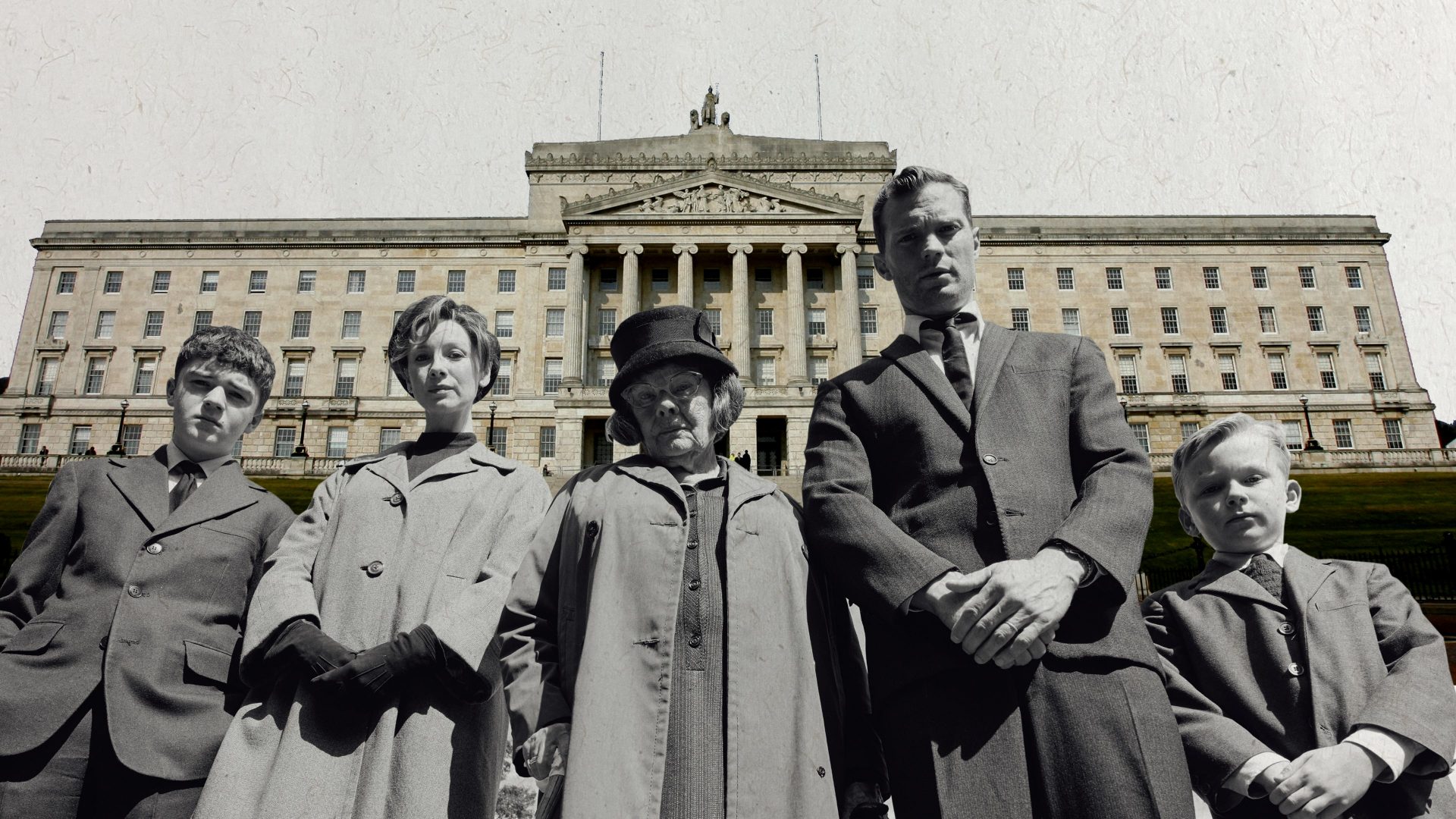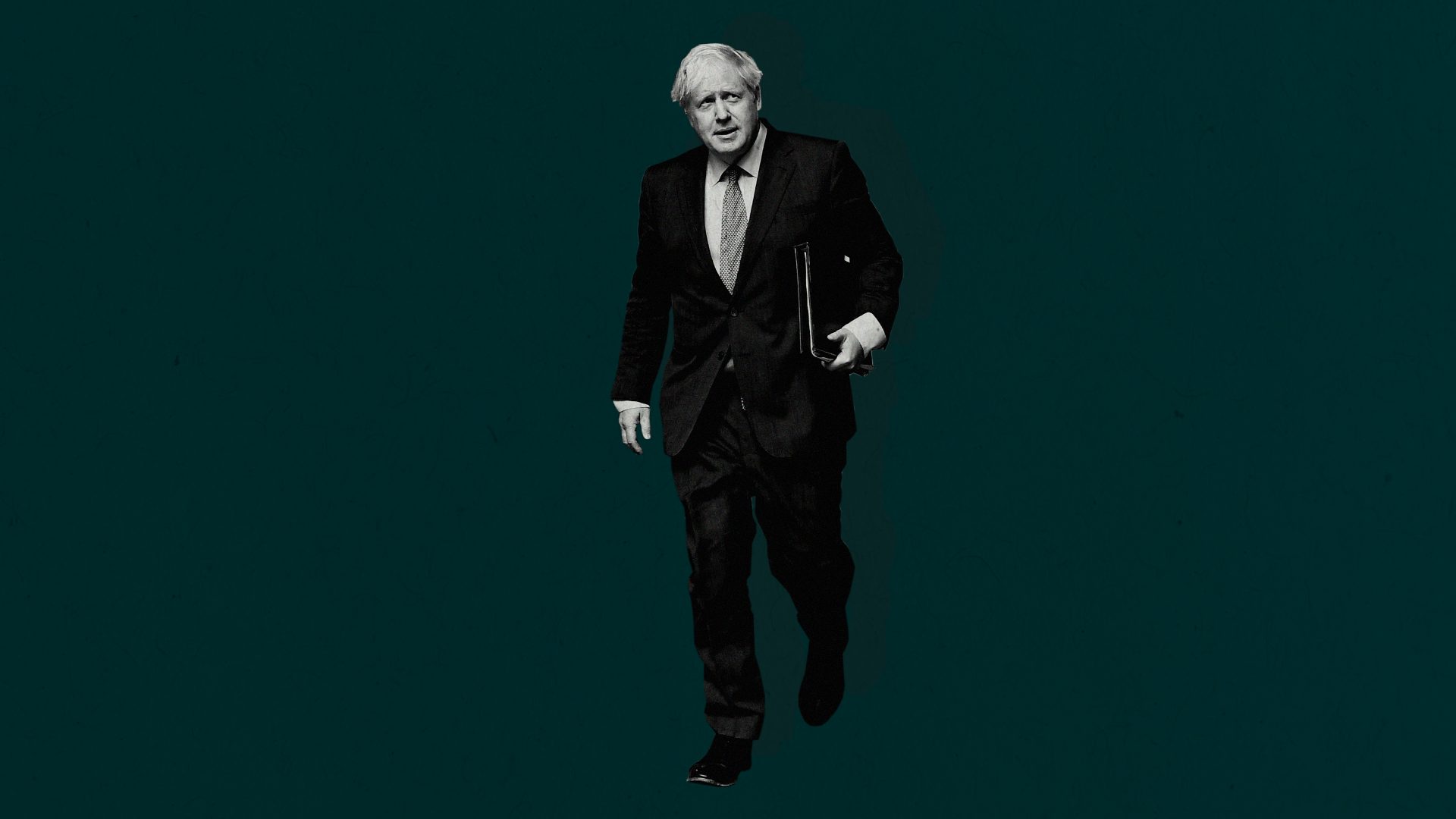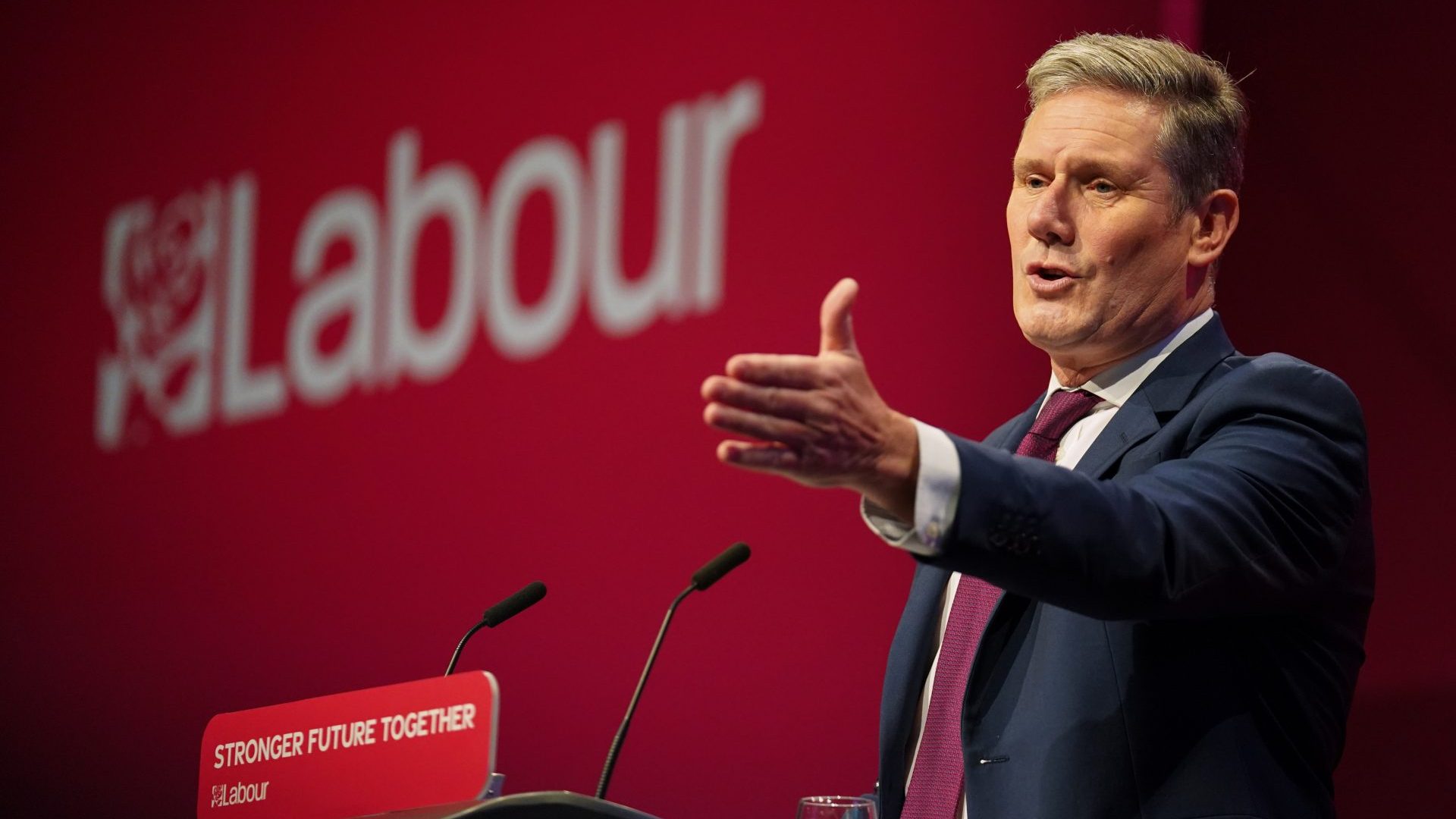When Sir Kenneth Branagh accepted the Best Original Screenplay Oscar for his film memoir, Belfast, he spoke movingly of a native city that had suffered greatly in the Troubles and where many had lost their lives, but the subtext was of a place that had moved on to better times.
“We will never forget all of those lost in the heart-breaking, heart-warming human story of that amazing city of Belfast on the fabulous island of Ireland,” he said.
As the movie’s black and white cinematography gives way to technicolour when the camera pans over the modern, transformed skyline of the Northern Irish capital, most of those gathered at the Hollywood ceremony would imagine a place where peace and prosperity have taken root in the 25 years since the Good Friday Agreement.
But seeing the whole picture in Northern Ireland can be tricky. The 2016 Brexit referendum has given rise to another, darker and increasingly unpredictable drama – rising tensions, anti-Northern Ireland Protocol rallies, angry rhetoric, sporadic violence and growing polarisation of communities.
Northern Ireland remains a place replete with the darkest of ironies. Last month the secretary of state, Brandon Lewis, announced that MI5 had lowered the NI-related terror alert from “severe” to “substantial”, the first reduction in 12 years, seen as a consequence of security force successes against dissident republicans.
Just two days later, however, the Irish Republic’s foreign minister, Simon Coveney, had to hurriedly abandon a speech he was giving at a peace and reconciliation event in north Belfast due to a hoax bomb attack. A driver was forced at gunpoint to drive his van with what he believed was a bomb on board to the Houben Centre, which is situated in the grounds of Holy Cross church in Ardoyne. Mr Coveney was five minutes into his speech when his security guard asked him to leave. A family spoke of their anguish as a funeral was disrupted. The traumatised van driver told how he had feared he was going to die
The Police Service of Northern Ireland (PSNI) blamed the Ulster Volunteer Force (UVF) for the attack, which has been linked to opposition to the NI Protocol.
A senior UVF source told a Sunday newspaper that future visits by Irish ministers could be targeted. “If the Irish government do not heed the warnings, then loyalists will intensify the threats against all politicians and officials visiting from Dublin. It is time to escalate this.”
The truth is that Northern Ireland has been keeping something of a secret from the fellow jurisdictions in the UK and Ireland – the impression given that the place was flourishing with a degree of self-direction.
In fact, power-sharing at Stormont works fitfully, if at all. Collapsed for three of the last five years, the Northern Ireland Assembly limped to the finishing line of its most recent mandate last Thursday without a functioning executive after Democratic Unionist party (DUP) leader Sir Jeffrey Donaldson pulled his first minister, Paul Givan, out of government on 3 February in protest at the protocol. The assembly only returned in early 2020 after a three-year absence sparked by the Renewable Heat Incentive (RHI) scandal, when the late Sinn Féin deputy first minister, Martin McGuinness, resigned.
The polls open on May 5, with the looming election set to be one of the most sectarian in decades as divisions exacerbated by Brexit dominate.
The protocol is designed to prevent the return of a hard land border with the Republic of Ireland, but many unionists strongly oppose it because it creates a trade border in the Irish Sea. It has resulted in new checks and paperwork for certain goods being imported from Great Britain. Opponents say that it undermines NI’s position in the UK and creates additional costs for business.
Unionist discomfiture has highlighted a new confidence in nationalism, with Sinn Féin strongly tipped to take the first minister post for the first time. Such symbolism would deal a psychological blow to unionism, which has never been more fragmented precisely when it has never needed more to be focused, strategic and united.
Whether Stormont will return – ever – for Sinn Féin’s vice-president, Michelle O’Neill, to take up the post remains highly debatable. None of the unionist leaders will confirm if their party would accept the role of deputy first minister – anathema to many of their voters. But not doing so is undemocratic and any signal of that intention will only swell nationalist turnout.
Nationalism, however, is not the only rival unionism faces. A rise in the so-called middle ground is also evident. A LucidTalk poll this week put Sinn Féin at 26%, with the DUP seven points behind on 19%. The Alliance party, which is designated “other” rather than “unionist” or “nationalist” in the assembly, had made ground at 16% while the Ulster Unionist party (UUP), which is also hoping to capture a moderate voter under its “union of people” slogan, was on 13%. The nationalist Social Democratic and Labour party (SDLP) polled 11% and the hardline Traditional Unionist Voice (TUV) 9%.
The sense of embattlement is palpable. On the road into Lurgan, a Co Armagh market town 23 miles from Belfast, red and white posters announced an “Anti-Protocol Parade & Rally” due to take place there on 8 April. But the event has already been overtaken by events, indicative of the deep fissures within unionism.
Prominent Brexiteer speakers showing solidarity at many of these rallies have included Kate Hoey and Ben Habib. But UUP leader Doug Beattie, listed to speak with Sir Jeffrey, TUV leader Jim Allister and loyalist activist Jamie Bryson, has withdrawn from the Lurgan event following the hoax bomb incident.
Beattie said his party remained opposed to the protocol, which has caused real “societal harm”, but that the rallies were “raising tensions”.
Moore Holmes, a teacher and loyalist who has been present at many of the rallies, told Radio Ulster: “We need to put every stop sign that we can on the path to disorder and instability… but failure to resolve this serious political issue will continue to give impetus to those who want to tread this path.”
He also identified some progress for loyalism: “We have seen the EU soften slightly, not enough of course, when they proposed bespoke solutions in October of last year. What they said was immutable became very flexible.”
But the amount of time it is taking to find a resolution doesn’t help. Inevitably the war in Ukraine has commanded the UK government’s full attention, and the sense that the conflict has led to greater UK-EU cooperation has also proved unnerving to some anti-protocol campaigners.
Some rallies have attracted just a few hundred protesters but others have seen turnouts numbering several thousand, such as in Markethill, Co Armagh, in February. That event also showcased the unrest in unionism when jeering greeted the DUP’s Brexit spokesperson, Sammy Wilson MP.
This election could prove punishing for the DUP. Riven by in-fighting that saw three leaders within the space of 50 days last year, the party was widely blamed for mismanaging Brexit – it was a partner in the Westminster Tory government during the negotiations yet wielded astonishingly little influence.
Crucially, polling day will reveal the prevailing mood in unionism.
An autumn 2021 poll of the Northern Irish public for the “Governance for a place between” project by the UK in a Changing Europe research group showed a slight majority in favour of the protocol, with 53% thinking it appropriate, and 52% thinking it on balance good for Northern Ireland (and 41% disagreeing, with 7% undecided). Most particularly there had been an increase in those thinking that the protocol was having a positive impact on the Northern Ireland economy (51%).
But a recent LucidTalk poll found that unionists cited concerns over the protocol and the future of the union even higher than cost-of-living worries. Asked what six topics would be most important when deciding which party to vote for, 61% cited “commitment to the union with the UK”, with 54% for opposing the NI Protocol, 52% for economy and jobs, 51% for the health service, 49% for cost of living and 31% for education.
Certainly, protecting the union does resonate with moderate middle-class voters, too. One seasoned Alliance supporter who would never attend a rally, said: “Of course I care about health, education, quality of life, but our allegiance to the union is in our DNA. When that affinity is cut, it counts.”
Revealingly, though, the LucidTalk poll also identified that commitments to a united Ireland were a top priority for only 51% of nationalists – with cost of living way out front in importance (70%).
Asked about the mood among nationalism to the protocol, a civil servant and mother-of-one said: “Generally people switch off, they’re more worried about their bills and the protocol negotiations are far away. I’m a political nerd and it doesn’t engage me.”
The indifference of nationalist voters to the protocol’s high drama for unionists may turn out to be one of the missed opportunities of this election. A focus on quality of life might have proved more effective in shoring up a unionist vote as well as weakening the restrictions of the protocol.
But Stormont has consistently failed to effect real improvements when it comes to the issues that affect people’s ordinary lives. The electorate has long become inured to the executive’s dysfunctionality. Since the devolved administration was set up in 1999, it has been absent for 37% of the time. When it has been sitting, it has failed to deliver on NHS reform, education, infrastructure, RHI recommendations and the looming cost-of-living crisis. Its handling of the pandemic has left Northern Ireland with some of the worst infection rates in Europe.
Ask anyone on any street for their opinion of Stormont and you’ll probably be told in no uncertain terms that it’s a waste of time.
By definition, a functioning executive would have defanged the protocol’s constitutional implications to take full advantage of its “best of both worlds” potential. But, like virtually every other issue, it has now become an Orange versus Green fight.
If Stormont worked, its benefits would be exploited while the myriad practical problems it poses for all of NI’s citizens would be creatively worked through.
Unionist concerns that NI’s place in the UK has been undermined have been met with a “serves you right for supporting Brexit” approach from nationalism which, for obvious reasons, welcomes any such shift. For that camp, it has been possible to see the protocol as a unionist problem that highlights the rationality of an all-island governance and economy.
But veteran columnist Patrick Murphy, writing last weekend in the nationalist daily newspaper the Irish News, warned that “the nationalist argument that the Northern Ireland Protocol is somehow ‘good’ for us is about to unravel in the real world of harsh reality”.
He highlighted the EU’s 2022 work programme of 44 new policy objectives, 29 of which will apply to Northern Ireland and relate to goods including hazardous substances in electronics, detergents, motor vehicle type approval, medicines and EU customs, VAT and excise legislation. If the UK approves a new drug, NI won’t be able to use it unless the EU approves it within six months and would have “a British-based NHS system run from London, using Brussels-based pharmaceutical regulations”.
Something of the accuracy of this affected the recent chancellor’s statement where his VAT cut on environmental goods cannot be applied to Northern Ireland because VAT is covered by the protocol. The Treasury needs to get agreement from the European Commission to extend the move here.
Resolving such confusions demands a clear-headed sense of purpose and working together. Instead, bitterness, anger, mistrust, fear and tribalism abound. It looks like Northern Ireland isn’t going to get a happy Hollywood ending just yet.
Gail Walker is a journalist and commentator who spent five years as editor of the Belfast Telegraph




